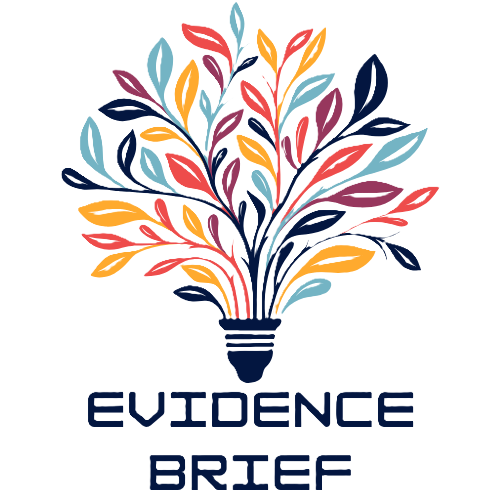Pursuing a PhD in creative writing isn’t just about penning the next great American novel or crafting poetry that makes readers weep. It’s a thrilling journey where imagination meets academia, and caffeine becomes your best friend. Picture this: a cozy nook filled with books, a steaming cup of coffee, and the occasional existential crisis about whether to write in first or third person.
This advanced degree offers aspiring writers the chance to hone their craft while diving deep into literary theory and critique. It’s a playground for those who dream of transforming their passion into a profession. So, if you’re ready to trade in your day job for a life filled with plot twists and character arcs, a PhD in creative writing might just be your ticket to literary stardom.
PhD Creative Writing
Pursuing a PhD in creative writing offers an in-depth exploration of both artistry and scholarship. Candidates engage with diverse forms of literature while developing advanced writing skills. The program typically includes workshops, seminars, and lectures that foster a comprehensive understanding of literary critique and theory.
Studying alongside experienced faculty members allows students to receive mentorship that enhances their creative processes. Engaging in peer feedback promotes constructive dialogues, providing valuable insights into individual works. Furthermore, students often delve into research focusing on various literary genres, styles, and historical contexts.
The academic component encourages a rigorous examination of literature’s role in society. Engaging with texts from multiple perspectives fosters critical thinking skills essential for career development. Graduates emerge prepared for careers as authors, educators, or literary critics, equipping them to navigate the complexities of the literary world.
Networking opportunities abound within these programs, giving students connections that can lead to collaborative projects or publishable work. It’s common to encounter visiting writers and industry professionals, enabling students to expand their horizons further. A PhD in creative writing nurtures creativity while instilling the discipline required for successful careers in the writing field.
With a strong emphasis on research, students often complete a dissertation that contributes original thought to the field. This academic exercise showcases their expertise and unique voice, positioning them for potential job opportunities in academia or publishing.
Program Structure
A PhD in creative writing encompasses a comprehensive curriculum that balances creativity with academic rigor. The structure allows students to engage deeply with their craft while exploring various literary theories.
Coursework Requirements
Coursework typically involves a mixture of workshops, seminars, and literature courses. Students complete core classes that address writing techniques and styles. Advanced writing workshops focus heavily on practice and peer critique. Electives in creative nonfiction or genre studies provide opportunities for specialization. Additionally, students tackle topics in literary theory, literary history, and critical analysis to enhance their understanding of the field. Each component is designed to cultivate a robust skill set used in various writing contexts.
Thesis Components
The dissertation constitutes a significant part of the PhD journey. Candidates produce an original piece that showcases their voice and mastery of form. A critical component accompanies the creative work, offering an analysis of the artistic choices made during the writing process. Faculty guidance and peer feedback play vital roles in shaping the thesis. This culminating project serves as a demonstration of scholarly depth and creativity. Upon completion, graduates possess a comprehensive portfolio that reflects their expertise and readiness for professional opportunities.
Admission Process
The admission process for a PhD in creative writing involves several key components that candidates must navigate carefully.
Application Requirements
Candidates must submit a completed application form along with their academic transcripts. A writing sample showcasing their original work is essential, often comprising 15 to 25 pages of poetry, fiction, or creative nonfiction. Letters of recommendation from academic or professional sources strengthen an application significantly. Additionally, a personal statement detailing their writing journey and research interests is required. Some programs may request standardized test scores, though many have shifted away from this requirement in recent years. Familiarity with the program’s faculty and their research can further enhance the application.
Interview Tips
During the interview, candidates should express passion for their writing and the program. Clear articulation of their creative goals demonstrates preparedness. Engaging with faculty members about their research interests establishes a connection that can leave a lasting impression. Candidates benefit from having thoughtful questions ready, showcasing their knowledge of the program. Practicing responses to common interview questions can alleviate anxiety. A confident demeanor helps to convey professionalism and commitment, making a strong case for admission.
Career Opportunities
A PhD in creative writing opens diverse career pathways. Graduates can pursue positions in academia or various industries.
Academic Positions
Professors represent one of the most common roles for PhD graduates. They can teach creative writing at community colleges or universities, sharing their expertise with aspiring writers. Additionally, mentoring graduate students enriches their academic experience. Literature scholars also engage in research, publishing articles and presenting at conferences. Furthermore, some graduates might direct creative writing programs, shaping curriculum and fostering new talent. These positions typically require a strong portfolio and published works.
Industry Roles
Creative writing PhD holders can thrive in several industry roles. They often work as editors, helping authors refine their manuscripts or maintain quality in publishing houses. Many also find opportunities in content creation, producing engaging material for websites or marketing agencies. Additionally, some individuals become literary agents, connecting writers with publishers and advocating for their work. Beyond traditional roles, graduates may explore screenwriting or playwriting, tapping into the entertainment industry. Flexibility and creativity define these diverse opportunities.
Pursuing a PhD in creative writing is a transformative journey that merges artistic expression with scholarly inquiry. It equips candidates with the tools to navigate the complexities of literature and the writing industry. Through rigorous coursework and valuable mentorship, students refine their craft and develop a unique voice that stands out in the literary landscape.
Graduates emerge ready to embrace diverse career opportunities, whether in academia or various creative sectors. The skills acquired during this program not only enhance their writing but also foster critical thinking essential for engaging with the world of literature. This degree ultimately paves the way for a fulfilling career, allowing writers to contribute meaningfully to the literary community.


